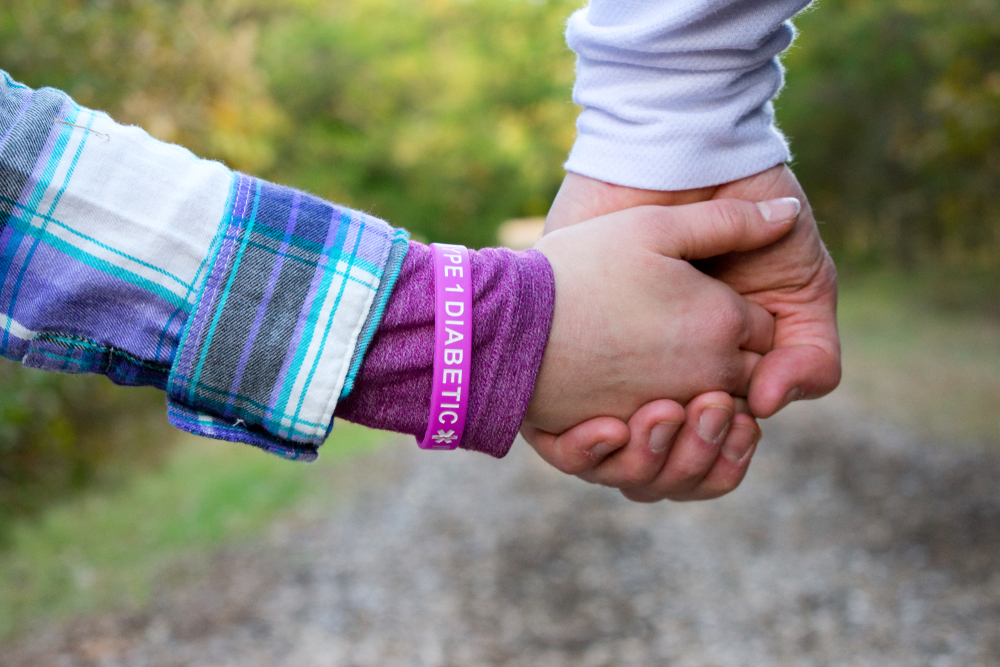Being a parent and raising a child is already a daunting task, but then add a chronic illness like type 1 diabetes into the mix and it becomes downright overwhelming! From the first day of their diagnosis, parents will be faced with decision after decision. It’s stressful, anxiety provoking, and a little scary. Thankfully, there are many resources available for parents, in addition to advice from medical experts.
You’ll no doubt be faced with many challenges along the way when it comes to raising a child with type 1 diabetes. This will never change. The key is knowing how to handle these challenges and tackle them together, as a family. Tom Karlya is a father of two children with diabetes, to help other parents in a similar situation, he’s sharing some advice and tips on the biggest challenges of raising children with type 1 diabetes…
Use Available Resources
As we mentioned above, parents of children with diabetes will be faced with many decisions along the way. Thankfully, there’s a world of online resources (in addition to advice from medical experts, of course). Don’t be afraid to do use any and all the resources provided. Take the time to learn about diabetes. The more educated a parent is on their child’s condition, the better equipped they will be at helping them. Use any online resources available (as long as they are reputable), as well as any support groups or resources provided by your doctor.
Health experts know a lot about diabetes which is great! However, it can make it a little overwhelming when it comes to looking for information. Chances are when typing “diabetes” into your search engine, smoke started coming from your computer due to the zillions of possibilities. Which one do you choose? For myself, WebMD was a great online resource that contained the latest and greated information. However, in the first two months of a diagnosis, avoid the online community and get the basics from your doctor.
Listen to Your Doctor
While there are plenty of resources available that are great for parents, not only for information but also just overall support. I recommend sticking to your medical team in those early months. You don’t want to overwhelm yourself with information, plus it’s still important to value your doctor’s advice above all else, so I suggest getting the basics from them.
Your doctor will teach you all the management tools needed when it comes to testing and administering medication. Take a few months to understand exactly what you and your child need to do together, as a team, in order to better understand this disease.
There will be plenty of time down the road to seek out advice and support online later on.
Be a Role Model For Your Child
Another important thing to remember is that kids are still kids! No matter what their diagnosis is. You’re still their role model and they are watching you. You might be the one managing their diagnosis now, but they are the ones who have to live with it for the remainder of their lives. Their relationship with their diagnosis will likely be determined with how the parent deals with it. While it’s definitely not a “good” thing to have to live with diabetes, it’s not the end of the world.
They can still enjoy their childhood years while dealing with a diabetes diagnosis. There will be many new and additional challenges, yes, but diabetes is a manageable disease. Remember that! After receiving this diagnosis, too many people resort to the “doom and gloom” thinking, but impact something like this has on our life is largely shaped by how we deal with it.
You’re allowed to be upset at times, but just remember your child is watching. Let your reactions be real, but also understand that nothing should change in the everything that will change. What I mean is, yes, there are now many new rules but they can still enjoy the same activities and hobbies they did before.
When Kaitlyn stated she wanted to try out for cross-country on the track team at school, we swallowed hard and figured out a way. We limited her to nothing and allowed her to set her sights as high as she wanted to go. You can do the same.
Adjusting to the New Normal
After receiving a diabetes diagnosis, there will no doubt be a “new normal” to become accustomed to. Both for you and your child. It might take some time to get into the swing of things, but maintaining positivity is important. Change can be difficult to accept, even for adults, so try and make these changes as easy as possible. Once you are into the ‘swing’ how this diabetes thing will go in your lives it’s important that you, as parents, keep that positivity.
You can empower them to take charge of their diagnosis by educating them on how to take care of themselves. Make them feel empowered. In my opinion, education is the equalizer in this disease. The more you know how this disease impacts your child and why, the better equipped you’ll be to ask the right questions and recognize what is real and what isn’t in online communities.
Keep encouraging your child to reach for the stars and to continue learning about their disease and how to better manage it. At the end of the day, they’ll be the one living with diabetes, so don’t forget to include them in your learning process and provide them with any and all the tools learned along the way.
Managing Diabetes at School
One of the biggest challenges a child (and parent) will face is them attending school while managing a diabetes diagnosis. Avoid using the word “different” because all kids are different in their own way, however it’s imperative a child understands that their diagnosis is important and needs to be managed. There’s a fine line between explaining the important of taking care of their health and making them feel ostracized or different.
If you make diabetes the biggest thing your child will deal with — guess what? Diabetes will become the biggest thing they will deal with. Don’t misunderstand, it’s crucial, and they MUST take care of it but also know it’s a big world with many of exciting things.
As my daughter taught me when she was just nine and interviewed by the media because she was one of the early few wearing an pump (thankfully MUCH has changed since 1999). When the reporter asked about being different, she smiled and answered, “Oh no, I HAVE diabetes. Diabetes IS NOT who I am.”
It was the biggest lesson we ever learned. We took those words as our challenge as well. We made sure her life was a list of ‘yes you can’ and not ‘no I can’t.’ Educate them and yourself and give them all the right tools and more importantly, encourage the correct attitude.







